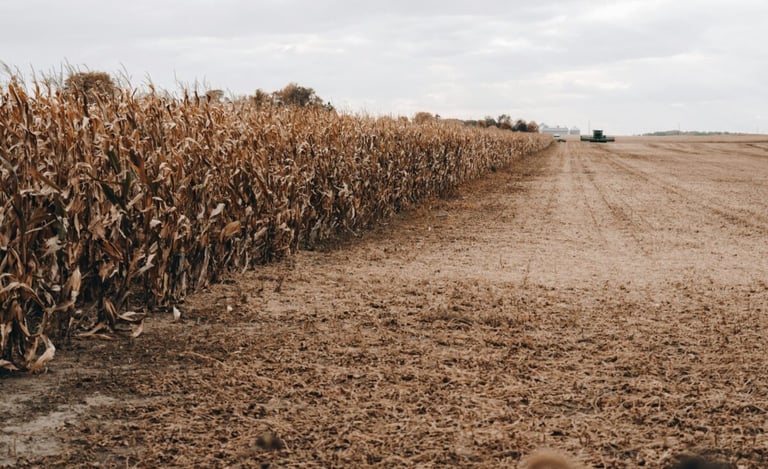Nebraska Economic Woes: A Study in Unintended Consequences
In the recent election, Nebraska showed overwhelming support, with 59.32% of voters casting their ballots in favor of Donald Trump.
ECONOMICSPOLITICSTRUMP


The Voter's Dilemma
In the recent election, Nebraska showed overwhelming support, with 59.32% of voters casting their ballots in favor of Donald Trump. While this may have seemed like a victory at the time, the aftermath presents a rather ironic question: has this winning streak come at the cost of Nebraska's economy?
A Call to Action
Recently, Governor Pillen found himself in a rather distressing conversation with Trump. The crux of the issue? Migrant farm labor has fled the state, leading to a shocking crash in tax revenues. With a significant portion of labor now absent, farmers are struggling to maintain their production levels, a situation exacerbated by the additional burden of China withholding $2 billion in soybean orders from Nebraska's farmers. It appears that the state, once the breadbasket of America, is now facing an uphill battle.
Counting the Costs
The numbers are staggering. Nebraska is experiencing a net loss of $15 billion in sales, along with a $350 million dip in its tax base. This financial crisis reveals the irony behind Trump’s triumphant slogan of “winning”—it seems that the only winners are the states that didn't rely on policies leading to such economic turmoil. As Nebraska grapples with these economic challenges, one must ponder: at what point does support translate to tangible benefits for the very state that stood in solidarity?
The Trade War Tug-of-War
The recent plan from the White House to extend approximately $12 billion in emergency aid to farmers reflects an escalating issue in the realm of trade. As tariffs unfold like a poorly scripted drama, many are left wondering whether this is genuine support or a politically-motivated bailout.
Examining the Definition of 'Emergency Aid'
When the term 'emergency aid' is tossed around, it conjures images of natural disasters or humanitarian crises. Yet, in this context—amidst Trump’s trade policies—a different narrative emerges. If one takes a moment to ponder, government funds used for healthcare or education are branded as 'socialism.' However, when these same funds are redirected to salvage farms from the grip of a trade squabble, it becomes a lifeline of 'emergency aid.'
Farmers: The Caught-in-the-Crossfire
Farmers, often the backbone of America's economy, find themselves ensnared in the repercussions of this trade war. As crops face uncertainty and financial stability hangs by a thread, what can be more urgent than federal intervention? Yet, we must ask: Are these emergency funds a patch on a leaky roof rather than a solution to the flooding issues of trade policy?
This juxtaposition of support and criticism reveals the intricate web of politics that surrounds emergency aid. While some hail it as much-needed support in trying times, others view it skeptically as merely a maneuver to distract from deeper issues. The real question lies in how this aid will be perceived long term in a landscape rife with divergent opinions.
AI Generated Image